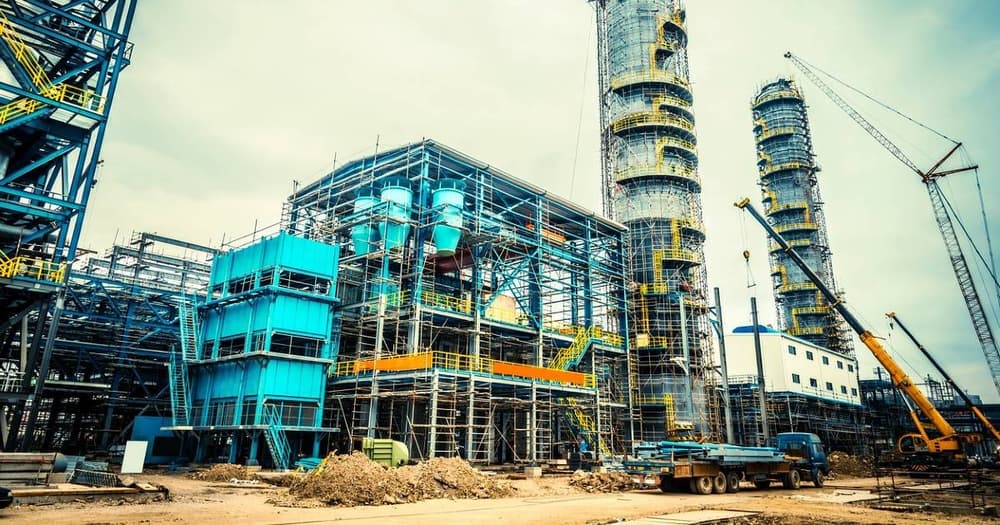In the oil and gas industry, transmission lines are used when oil and liquids have to travel long distances through pipes. These liquids are pushed through the pipes by using powerful pumps.
This is considered to be the “midstream” phase of getting the oil from the earth and to the consumer. Once extracted from the ground, the midstream sector gathers, stores and transports the oil and gas from drilling sites to the refinery.
Midstream companies specialize in operating tanker ships, pipelines or storage facilities.
There are many career paths involved when it comes to the transmission of oil and gas because of the diverse nature of the systems involved.
Interesting in learning more? Keep reading to find out what the best pay jobs are in oil and gas transmission:
Pipeline Design Engineer
Pipeline Design Engineers work with project managers to design reliable and cost-effective plans for pipeline facilities. They oversee assembly and installation as well as supervise the operation team that lays out the pipes.
Pipeline Design Engineers are also responsible for providing technical support during overhauls and repairs.
How to Become a Pipeline Design Engineer: This position requires a Bachelor’s degree. Proficiency in computer programs, such as AutoCAD, is an asset as well.
Average Yearly Salary: $114,000
Pipeline Control Center Operator
Pipeline Control Center Operators use computerized equipment to monitor the operations of pipeline structures to keep track of oil as it moves through the pipes. They also control product batches as they enter and exit the system.
Pipeline Control Center Operators are also responsible for the safe and timely delivery of oil products.
How to Become a Pipeline Control Center Operator: While there are no standard education requirements to become a Pipeline Control Center Operator, having a 2-year diploma in a related discipline (such as engineering technology, instrumentation and electrical, mechanical or petroleum technology) is favored by employers.
Average Yearly Salary: $80,000
Oil and Gas Transportation Operator
Oil and Gas Transportation Operators transport liquid and gas products as well as equipment and other supplies used in the exploration, development and production of oil and gas.
They drive special purpose trucks including transport trucks, tankers and other specialized vehicles used in the transmission of oil products.
How to Become an Oil and Gas Transportation Operator: A high school diploma/GED is required to become an Oil and Gas Transportation Operator. However, you will also require a CDL (Commercial Driver’s Licence) as well as additional certification including safety training and Transportation of Dangerous Goods (TDG).
Average Yearly Salary: $74,000
Gas Controller
Gas Controllers are responsible for the safe and efficient operations of the pipeline and compressor stations. Tasks may include supporting pipeline operating functions or pipeline facilities, measurement facilities and equipment, basic instrumentation and controls and pigging activity.
They are also responsible for implementing physical risk management processes and procedures as well as coordinating plant activity and monitoring equipment.
How to Become a Gas Controller: You only need a high school diploma/GED to become a Gas Controller, although some employers prefer to see a college degree in a related field as well as 1-2 years of oil industry experience.
Average Yearly Salary: $73,000
GIS Technician
GIS (Geographic Information Systems) Technicians work on gas distribution design projects by designing the system and developing the permit drawings as well as applying for distribution lines.
GIS Technicians may also be responsible for conducting spatial analysis using specific software as well as the production of specialized map products.
How to Become a GIS Technician: To become a GIS Technician, you will need a Bachelor’s degree in geography, computer science, engineering or another related field.
Average Yearly Salary: $54,000
Pipeline Transportation Laborers
Pipeline Transportation Laborers assist with the manual labor required to construct, maintain and operate a pipeline. They are members of a crew that includes tradespersons, operators and laborers.
Typical roles for a Pipeline Transportation Laborer include pre-construction workers, construction workers, post-construction workers, maintenance/terminal/station workers and line walkers.
How to Become a Pipeline Transportation Laborer: This is considered to be an entry-level occupation, so to become a Pipeline Transportation Laborer, all you need is a high school diploma/GED and on-the-job training. Having additional safety certifications helps too.
Average Yearly Salary: $40,000
Get Your Career Started Today!
The Midstream sector of the oil and gas industry is continually evolving and creating amazing job opportunities and career paths for oil and gas workers.
Not an oil and gas worker? Now may be the time to get involved in this booming industry!
Check out our job postings for Midstream and transmission opportunities:
Job Opportunities in the United States

